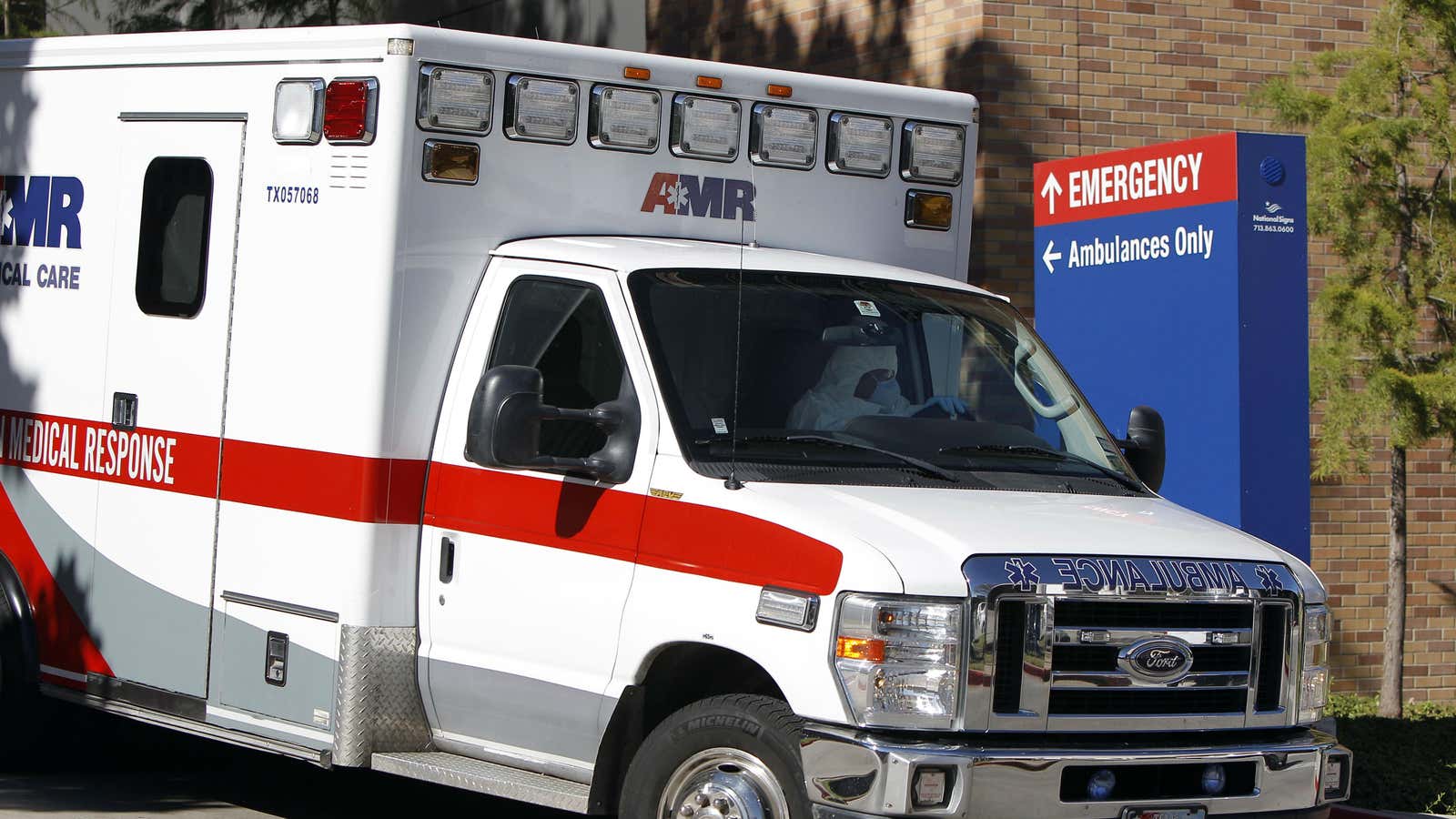For Michelle Bundren, there is no such thing as a typical patient. As an emergency medicine physician, she may see anything from a child with an ear infection to a car crash victim to a drug overdose in the same day. ”You see anything and everything,” she said.
Yet Bundren, a 30-year-old emergency medicine physician wrapping up her residency at John Peter Smith Hospital, the Tarrant county hospital in Fort Worth, Texas, has noticed certain patterns in her work. It’s often not accidents or unpredictable illnesses that bring patients into the ER—it’s chronic or previously treatable conditions that have gotten out of control. These visits may be from patients who are embarrassed about talking to their doctors, or in denial that they have a health problem. Some patients don’t understand the importance of routine healthcare, or can’t afford it.
Quartz caught up with Bundren to talk about the obstacles patients face in maintaining their own health. The following is edited and condensed for clarity.
Quartz: How do you see the role of the emergency room (ER) in modern medicine?
Bundren: In a perfect world, the ER would be for that—emergencies only, like that patient whose pneumonia has gotten so bad they need to be on life support to help them breathe, or that patient who broke their arm and needs pain control and to have it reset.
But it’s become a catch-all: When some patients come to the emergency room, a lot of them think they’re just seeing a doctor who can help them with anything. Really we’re there to make sure they’re not going to die. Once we’ve ruled that out, we say, “You have diabetes, and you need to get this taken care of, but I’m not going to see you again, so you really need to go to your primary care physician.” We aren’t there for their chronic conditions. We’re there in case their chronic conditions become life-threatening.
Why do you think some of your patients wait until their underlying health issues force them to visit the ER?
Part of it is that people don’t want to accept that they have a chronic issue.
Sometimes it’s denial that they drink as much as they do, or denial that they don’t take their medication. More people are dying of high blood pressure or diabetes because they’re either not able to get their medication, or they’re in denial that they even have a condition.
Or, they’re embarrassed by their symptoms.
The heartbreaking stories are the patients who don’t want to go to the doctor because for some reason they want to be stoic or they’re scared. They feel like they don’t need to go to the doctor because they’re the ones providing for the family. So they just need to go to work day in and day out. Then we find out that they have stage four lung cancer. They’ve been short of breath for over a year, and if they’d come in a year ago, it could have been treated.
Are patients always honest with you when they finally do come in?
Patients lie all the time, and I think it comes back to being embarrassed, and not wanting to tell the physician everything.
Often, you know that they’re lying, but you don’t have to call them out on it because their labs will tell it all. A chronic alcoholic? You’re going to find changes in their liver enzymes. When the labs come back and they are abnormal, that’s when you go back and you can say, “Hey, I understand you say that you’re not doing anything, but these are what your labs are showing, so can you please tell me what’s going on?” And a lot of times, they will open up.
A lot of patients don’t understand that the questions doctors ask are very pertinent for their treatment. I always have to ask, “Do you smoke? Do you drink alcohol? And do you do drugs?” That is a standard set of three questions we have to ask to get a patient’s social history. It’s not fun talking about the personal stuff. It’s not fun for me, it’s not fun for the patient, but it is necessary.
So what should patients do to make sure they don’t wind up in the ER for these out of control chronic conditions?
Routine healthcare is so important, but we don’t stress that enough. We’ve grown up in this instant gratification age. But with chronic diseases, there’s no instant anything. Sometimes you don’t see the effects until 10 years down the road, yet they’re there, and they’re real. It all comes down to how the patient cares for themselves.
At the age of 35, you need to start getting blood work done, just routinely. By the age of 60, you’re supposed to get a colonoscopy to check that you don’t have colon cancer or polyps, and no one wants to do that. Even my family members say, “I don’t want to do that, that’s awful. It’s embarrassing, it’s horrible, and you have to take an entire day off work to do it.”
I think that a lot of patients think that they’ve been healthy forever, so why go to a routine doctor’s appointment every year when it’s going to cost me so much money? There’s only so much we can do: You can’t force someone to take their medication, and you can’t force someone to go to the doctor who doesn’t have any money.
That’s kind of the plus and minus of the Affordable Care Act. It allows people who don’t have the access to healthcare to get healthcare, and that’s the bigger picture that a lot of people don’t respect. But it’s very important to take care of yourself, and a lot of patients don’t realize that.




